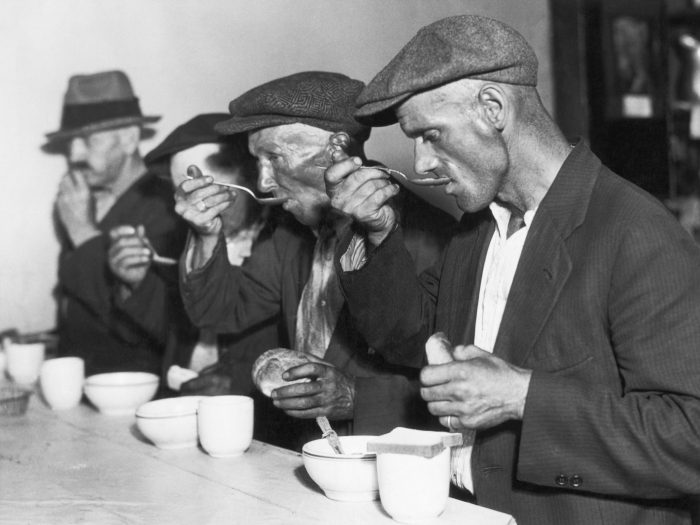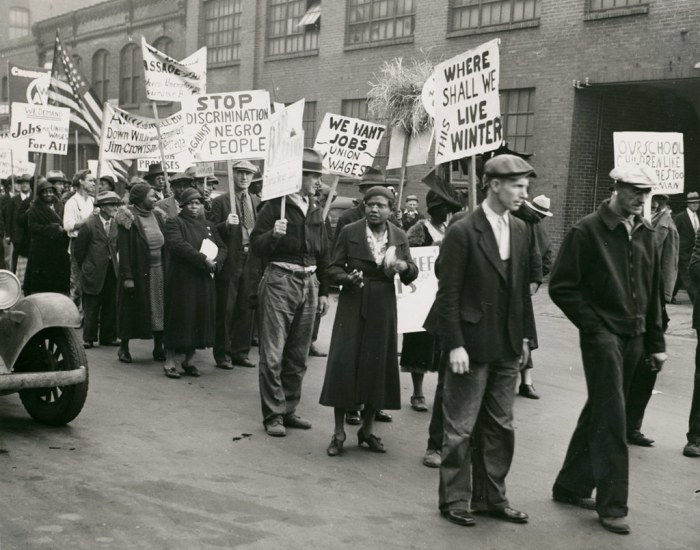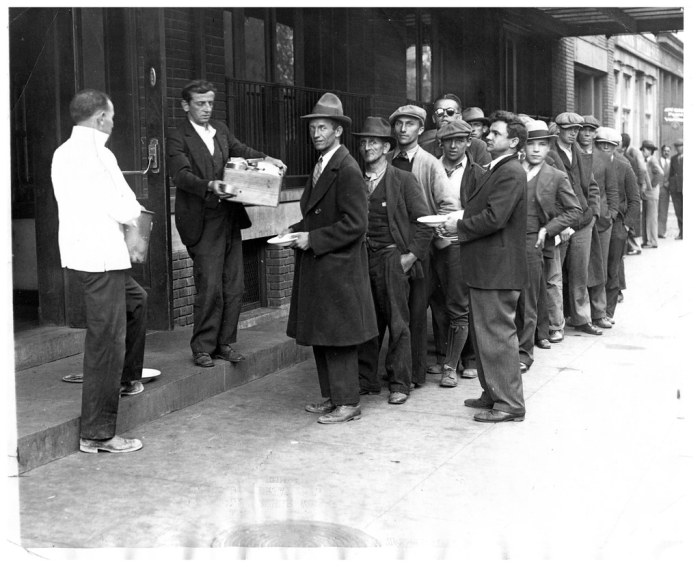During the great depression union promoters – During the Great Depression, union promoters emerged as pivotal figures in the labor movement, galvanizing workers to organize and fight for their rights amidst widespread economic hardship. This essay delves into the strategies, impact, and legacy of these promoters, shedding light on their crucial role in shaping labor relations and the labor landscape.
Union promoters employed innovative tactics to attract and mobilize workers, including organizing mass meetings, distributing leaflets, and establishing worker education programs. They faced numerous challenges, such as employer resistance, government suppression, and worker apathy, but their unwavering determination and strategic planning led to significant unionization successes.
Union Promoters and the Great Depression: During The Great Depression Union Promoters

During the Great Depression, union promoters played a pivotal role in organizing workers and advocating for their rights. Their efforts contributed significantly to the growth of labor unions and the improvement of working conditions.
Union promoters used various strategies to attract and mobilize workers, including public rallies, personal appeals, and educational campaigns. They targeted industries and regions with high concentrations of workers, such as manufacturing, mining, and transportation.
Challenges Faced by Union Promoters
- Employer opposition: Employers often resisted unionization efforts, using tactics such as firing workers who supported unions or blacklisting them from employment.
- Government repression: In some cases, local and state governments cracked down on union activities, arresting and prosecuting union organizers.
- Internal divisions: Unions faced challenges in organizing workers from different backgrounds and with diverse interests.
Impact of Union Promoters on Labor Relations, During the great depression union promoters
Union promoters had a profound impact on labor relations during the Great Depression. Their efforts led to the formation of new unions and the strengthening of existing ones. This gave workers a greater voice in the workplace and helped to establish collective bargaining as a key mechanism for resolving labor disputes.
Unionization also led to improvements in working conditions, including higher wages, shorter hours, and better safety standards. These changes benefited not only union members but also non-union workers, as employers were forced to compete for labor by offering better conditions.
Questions and Answers
Who were the key union promoters during the Great Depression?
Prominent union promoters included John L. Lewis, William Green, and A. Philip Randolph.
What were the main strategies used by union promoters?
Promoters employed mass meetings, leaflet distribution, worker education programs, and strategic alliances with other organizations.
What challenges did union promoters face?
Promoters faced employer resistance, government suppression, worker apathy, and economic hardship.

